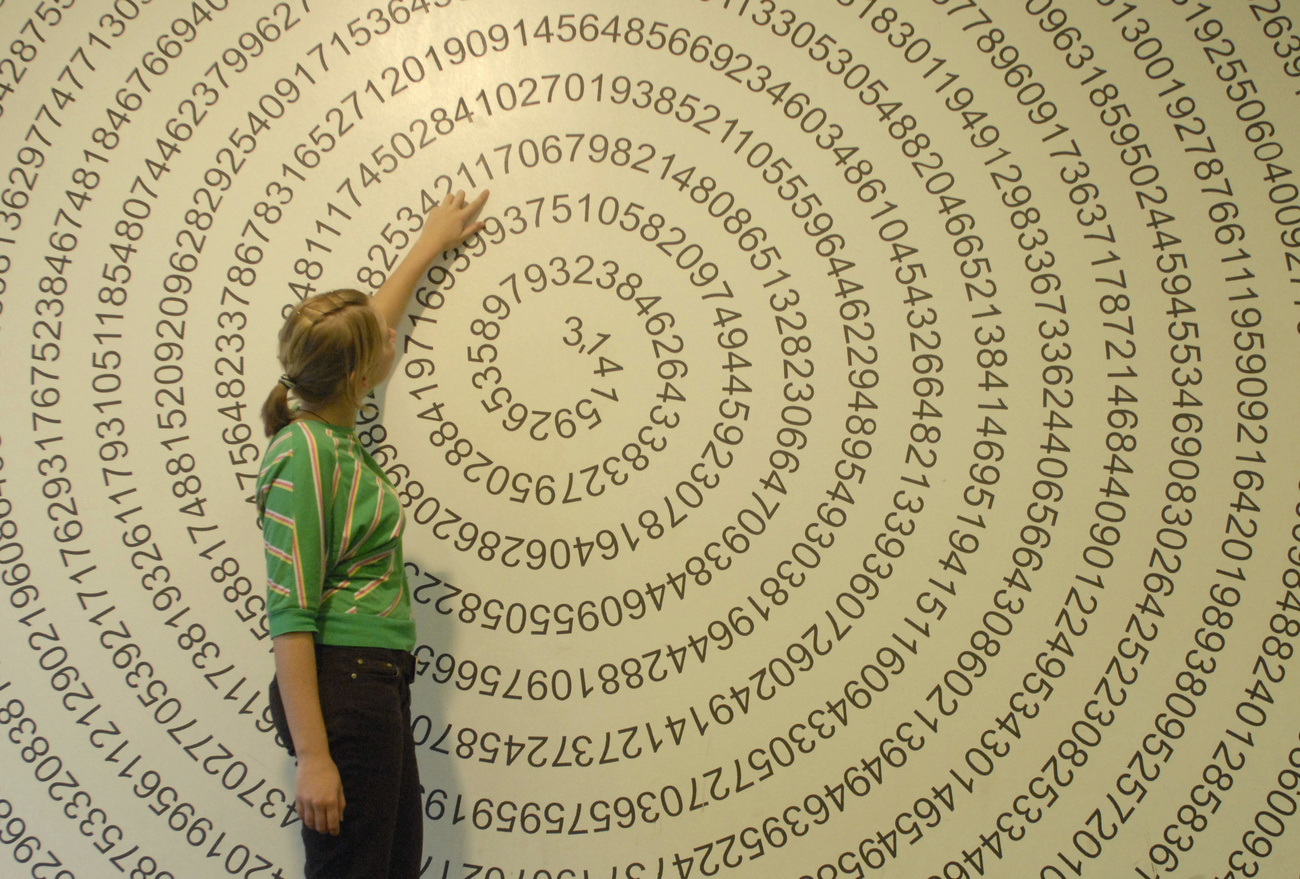
Swiss university claims new record for calculating Pi

Swiss scientists claim to have set a new world record for calculating the number Pi to 62.8 trillion decimal places.
The University of Applied Sciences in Graubünden said last week that it took 108 days and nine hours to achieve the result using a high-performance computer.
The new record was calculated around 3.5 times faster than the previous record set in 2020, which calculated Pi to 50 trillion decimal places, it said.
“It is almost twice as fast as the record set by Google in 2019,” it added in a statementExternal link.
The full results will be revealed once the record has been certified by the Guinness Book of World Records. But the university in eastern Switzerland has already announced that the last ten digits of Pi are “7817924264”.
The calculation was undertaken to achieve several goals, explained professor Heiko Rölke, head of the university’s Center for Data Analytics, Visualization and Simulation (DAViS).
“In the course of preparing and performing the calculations, we were able to build up a lot of know-how and optimize our processes. This is now of particular benefit to our research partners, with whom we jointly carry out computationally intensive projects in data analysis and simulation,” he said.
Mathematical constant
Pi, which begins with 3.14159, is a mathematical constant defined as the ratio between a circle’s circumference and its diameter.
It is impossible to know the exact value because the number of decimal places is infinite, but knowledge about the number is constantly being updated thanks to powerful computers.
Being able to approximate Pi with some precision is important because the mathematical constant has many different practical applications, said Jan de Gier, a professor of mathematics and statistics at the University of Melbourne.
“Knowing Pi to some approximation is incredibly important because it appears everywhere, from the general relativity of Einstein to corrections in your GPS to all sorts of engineering problems involving electronics,” he told The Guardian newspaper.
He described the Swiss university’s calculation of Pi to 62.8tn decimal places as a “benchmarking exercise for computational hardware and software”.
“World records: they’re not useful by themselves, but they set a benchmark and they teach us about what we can achieve and they motivate others,” he said.

In compliance with the JTI standards
More: SWI swissinfo.ch certified by the Journalism Trust Initiative

























You can find an overview of ongoing debates with our journalists here . Please join us!
If you want to start a conversation about a topic raised in this article or want to report factual errors, email us at english@swissinfo.ch.